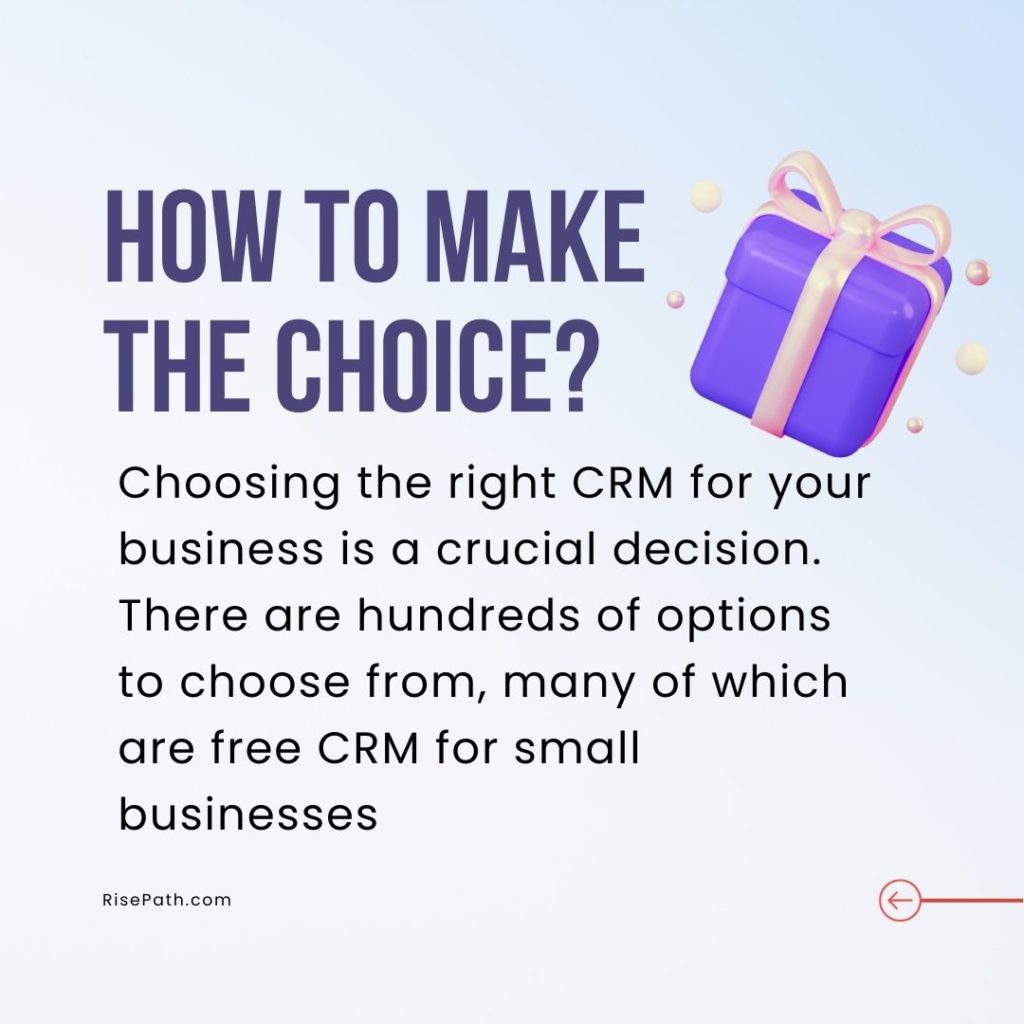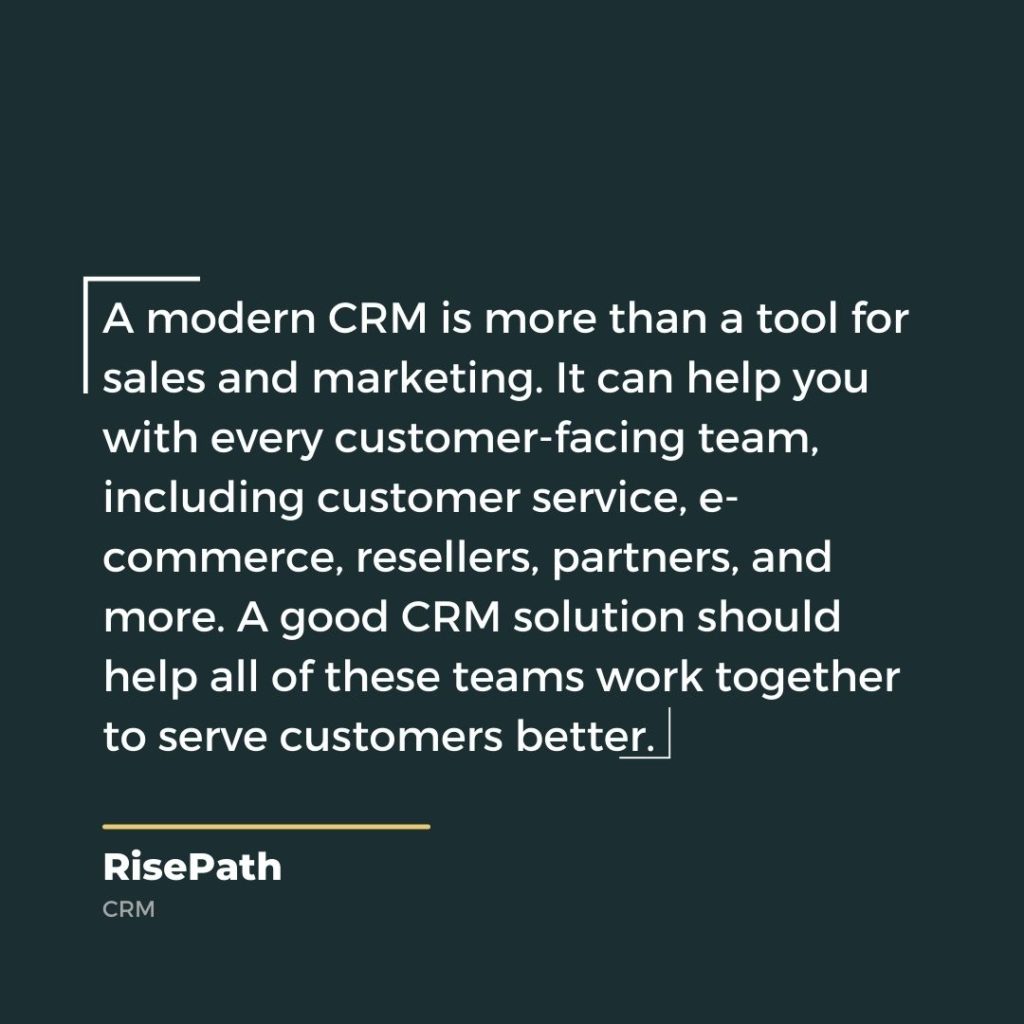The current era of business is inextricably intertwined with the relentless surge of technological advancements, propelling enterprises into uncharted territories of innovation and competition. Amid this dynamic milieu, one constant stands unassailable – the significance of Customer Relationship Management (CRM). As businesses navigate the intricate pathways of the IT-driven landscape, the pivotal role of CRM in orchestrating enhanced customer experiences and sustainable growth has emerged as a cornerstone of success.
The Crucible of CRM: Navigating the Complex Terrain
In the contemporary business narrative, where the digital ecosystem reigns supreme, the efficacy of CRM solutions assumes paramount importance. These systems are more than just repositories of customer data; they are comprehensive tools designed to streamline operations, foster inter-departmental synergy, and supercharge customer interactions. By melding advanced technologies with strategic foresight, CRM solutions metamorphose enterprises into agile entities capable of fostering enduring customer relationships, bolstering customer loyalty, and amplifying revenue streams.
Augmenting Efficiency and Nurturing Growth
The intrinsic value proposition of CRM solutions lies in their ability to serve as multifunctional powerhouses, catering to diverse operational domains. These platforms provide a treasure trove of features encompassing marketing automation, sales force management, customer service optimization, and analytical insights. By unifying these functionalities, CRM solutions alleviate the operational burden, enabling sales teams to pivot their focus towards strategic activities such as lead generation and personalized customer engagement.
The Plenitude of CRM Offerings: A Conundrum of Choice
The contemporary business milieu is replete with a myriad of CRM software solutions, each clamoring for attention. However, the selection process is far from arbitrary. A well-informed decision hinges on a nuanced understanding of the enterprise’s unique requirements, operational nuances, and strategic aspirations.
13 factors that you need to consider for choosing your CRM solution:
- Identify your needs
Before embarking on the journey of CRM selection, a comprehensive introspection is necessary. This involves delineating the specific roles the CRM will fulfill – whether as a marketing facilitator, a sales accelerator, or a customer service enabler. By elucidating the intricacies of these roles, the contours of CRM requisites become lucid.
- What sort of contact data do I want to be collected?
- Will my sales team be using CRM on mobile devices?
- How many reps will be using the CRM?
- Identify must-have features of your ideal CRM solution
Crafting an exhaustive catalog of indispensable features aligns the selection process with the enterprise’s core objectives. Compatibility with existing software ecosystems, mobile access for remote sales representatives, and customizable dashboards tailored to specific departments are quintessential considerations.
- Consider how users will access the CRM solution
The agility of CRM access mechanisms shapes the user experience. From desktops to mobile devices, ensuring seamless and intuitive access bolsters operational fluidity. Scalability considerations, encompassing user growth and data influx, are instrumental in avoiding future bottlenecks.
- Identify teams that will use the CRM
The modern CRM paradigm transcends departmental silos. A comprehensive CRM strategy should cater to departments beyond sales and marketing, such as customer service, e-commerce, and partnerships. The synergy between these facets amplifies the holistic customer experience.
Before you start shopping around, make a list of departments that will be using your new CRM. That way, you can make sure you choose software that fits each department’s workflow and needs. For example, if your company has a call center, you’ll want a CRM that integrates well with your existing phone system. If you have an e-commerce website, you’ll want one with solid marketing automation tools to help you nurture leads and improve your conversion rate.
- Plan your budget
The fiscal dimension looms large in CRM adoption. Determining an appropriate budget, correlated with the projected revenue influx, frames the feasibility of potential solutions. Whether opting for free CRM solutions tailored for small enterprises or investing in premium offerings, this calculus ensures financial equilibrium.
To figure out how much money to spend on a CRM solution, think about how much revenue it could potentially bring in.
- Check GDPR compliance of the tool
With data security and privacy occupying center stage, adhering to regulations such as the GDPR is non-negotiable. A diligent evaluation of the CRM’s compliance credentials assures the sanctity of customer data.
- Customization and Reporting
Small enterprises often harbor specific operational requisites, necessitating CRM customization. A symbiotic feature is reporting, encompassing standard dashboards and custom-tailored analytical insights. These facets ensure data-driven decision-making.
Reporting is also an important feature of any CRM system. Most free CRM for small businesses offer some built-in reporting features with pre-configured dashboards and metrics. However, if a business has very specific reporting requirements, custom reports might be needed.
- Integration with Other Tools
The prowess of CRM solutions is magnified when seamlessly integrated with pre-existing software tools. The harmony achieved through this interoperability culminates in an unbroken workflow continuum.
- Ease of Use
A user-centric CRM spells the difference between efficacy and resistance. Choosing an intuitive system ensures higher adoption rates among sales personnel, accelerating the transition into streamlined operations.
- The Reputation of the Provider
The veracity of a CRM solution is anchored in the reputation of its provider. Scrutinizing the provider’s history, reading user reviews, and assessing the availability and efficacy of customer support is pivotal.
- Support
The price tag of CRM solutions is a labyrinthine spectrum. A judicious analysis, aligning the offering’s features with the enterprise’s needs, averts over-expenditure while optimizing value
- Cost of the CRM
Many enterprises possess pre-existing software solutions that must synergize with the new CRM. The compatibility between these entities is pivotal, preventing disruptive transitional phases.
- Integration with Other Solutions
Many businesses use other software solutions that they want to integrate with their new CRM system. It’s important that you check whether or not it’s possible to integrate your new CRM with these solutions before committing to the purchase.
The Imperative for Continuous Evolution
In the nexus of ever-evolving technology and dynamic business landscapes, CRM solutions are not stagnant artifacts but malleable tools that necessitate ongoing calibration. Enterprises must nurture a culture of adaptive learning, staying attuned to industry trends and leveraging CRM updates to optimize their operations continually.
Embarking on a Journey of Knowledge and Empowerment
For those seeking deeper insights into the intricacies of CRM optimisation, this article offers a glimpse into the myriad considerations that underscore the selection process. To delve further into this paradigm and access a complimentary informational eBook, kindly furnish your contact information. Empower yourself with the knowledge to navigate the labyrinthine landscape of CRM and forge a path toward enhanced customer experiences and sustainable growth.
Harnessing Technological Synergy: Elevating Customer Relationship Management in the Modern Business Epoch
In the digital age, where every click, swipe, and interaction is cataloged, businesses stand at a pivotal juncture. Customer Relationship Management (CRM) has evolved beyond a mere system; it’s a conduit for businesses to forge lasting connections with customers while navigating the ever-changing currents of technology. This exploration will traverse deeper into the multifaceted realm of CRM, unveiling its diverse dimensions and pragmatic applications.
The Paradigm Shift: From Data Management to Experience Enrichment
In an era marked by data abundance, CRM solutions have morphed from passive data repositories to dynamic enablers of customer-centricity. The pivotal role of these solutions lies not just in storing data, but in transforming raw information into actionable insights. Businesses wield these insights to craft personalized experiences, anticipating customer needs and fostering engagement across diverse touchpoints.
Strategic Architecture: Decoding the Components of Effective CRM
An effective CRM is akin to a symphony conductor, harmonizing myriad elements to create a melodious customer experience. Marketing automation streamlines campaigns; sales force management optimizes sales processes; customer service modules enhance support, all while data analytics uncloak trends and opportunities. This intricate interplay equips businesses to orchestrate seamless customer journeys, bolstering loyalty and nurturing advocacy.
Navigating the Landscape of CRM Diversity: An Informed Odyssey
- Gauging Unique Needs: CRM selection hinges on a crystal-clear comprehension of business needs. A meticulous analysis unfurls the canvas, where CRM can be a marketing ally, sales companion, or customer service maestro. Scrutinizing data requisites, mobile compatibility, and user volume is foundational.
- Feature Artistry: Crafting a feature wish-list constructs a North Star guiding CRM choices. Alignment with existing systems, mobile access, and adaptable dashboards are paramount. The CRM should be malleable to mirror the business’s identity.
- Seamless Accessibility: Crafting a personalized experience demands seamless access across devices. From laptops to mobiles, the user journey should remain uninterrupted, with scalability plans to absorb user growth.
- Holistic Team Integration: A 21st-century CRM transcends departmental boundaries. Beyond sales, marketing, and customer service, CRM permeates e-commerce, partnerships, and resellers. A harmonious alignment cultivates unified customer experiences.
- Budget: Fiscal Guardian of the CRM Odyssey: Budget allocation echoes fiscal prudence. From free CRM for small businesses to enterprise-level investments, the financial puzzle should coalesce with anticipated returns.
- Navigating Regulatory Quagmires: The regulatory terrain mandates meticulous adherence, especially in a data-centric domain. The tenets of GDPR compliance, safeguarding customer data, is a non-negotiable imperative.
- The Art of Customization and Reporting: Small businesses thrive on tailor-made solutions. Customization empowers the system to serve strategic goals. Reports, both pre-configured and bespoke, shape actionable insights, augmenting decision-making.
- Interconnectivity Unleashed: The CRM ecosystem expands beyond its boundaries. Integration with existing tools curtails silos, empowering the sales team with a holistic customer view.
- User-Centric Interface: A user-friendly interface breeds adoption. Navigability and simplicity should seamlessly coexist with sophistication, minimizing learning curves.
- Provider’s Legacy and Support: Behind every CRM stands a provider’s legacy. Scrutinizing provider reputation, user reviews, and customer support infrastructure formulates a reliable foundation.
- Support and Training: Aptitude alone doesn’t suffice; adequate support and training are essential for seamless adoption. Uninterrupted workflow hinges on responsive assistance.
- Cost Rationalization: The price tag embodies critical decisions. Balancing features with budget formsulates an economically sound choice.
- Ecosystem Synergy: Existing software solutions should align harmoniously. The CRM’s compatibility with the technology tapestry preempts bottlenecks.
The Voyage of Sustained Evolution
CRM isn’t static; it’s a living entity. Businesses need to cultivate an ethos of perpetual evolution, embracing CRM’s dynamic nature. Regular calibration, benchmarked against industry shifts and customer trends, ensures CRM’s resonance with ever-evolving landscapes.
Pioneering Knowledge Empowerment
For those seeking deeper insights into the intricacies of CRM optimization, this article offers a glimpse into the myriad considerations that underscore the selection process. To delve further into this paradigm and access a complimentary informational ebook, kindly furnish your contact information. Empower yourself with the knowledge to navigate the labyrinthine landscape of CRM and forge a path toward enhanced customer experiences and sustainable growth.




Comments are closed, but trackbacks and pingbacks are open.